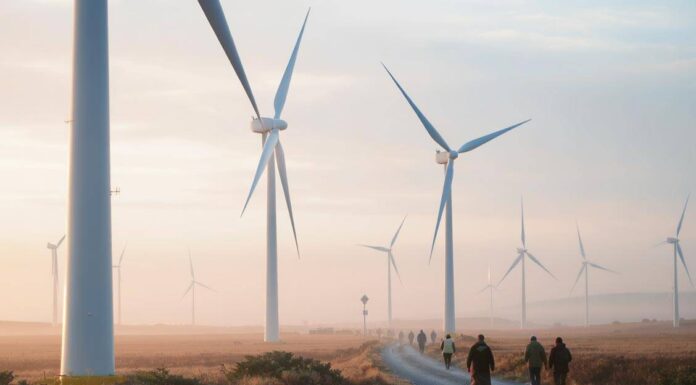The Uncertain Promise of Carbon Offsets
In an era bracing for climate change, carbon offsets have been lauded as a crucial mechanism to mitigate emissions. These schemes allow businesses and individuals to invest in environmental projects to compensate for their carbon emissions. However, recent data raises significant questions about their effectiveness and authenticity in contributing to global emission reductions. Delving into recent research findings, expert analyses, and the emerging discourse around the integrity of carbon offset mechanisms.
The Troubling Data on Carbon Offset Efficacy
Recent studies illuminate concerning trends in the application and impact of carbon offsets. According to a 2025 Yale VoxDev publication, emissions at CDM-registered firms rose by 49% over four years, overshadowing the theoretical benefits of offset projects. Furthermore, a study by Calel et al., published in the American Economic Journal: Applied Economics (2025), highlights that many offset projects do not meet ‘additionality’ criteria—meaning these initiatives would have occurred without financial incentives from carbon offsets.
Similarly disheartening is the revelation from an INRAE-led study published in Nature Sustainability (2025) that found substantial discrepancies between projected and actual emission reductions, attributing this to inflated baseline scenarios often used by carbon offset projects.
With technological improvements like ex-post evaluation methods and data-driven market design research highlighted by the INRAE and Kleinman Center respectively, there is a push towards more accurate measurement of impact—yet issues persist at foundational levels.
Expert Perspectives on Market Failures
Experts across academics and industry echo concerns regarding the operational weaknesses of current carbon offset markets. Research groups like Berkeley Carbon Trading Project call for enhanced transparency through tools such as Voluntary Registry Offsets Database to combat accountability issues. These insights suggest a systemic problem rooted deeply within both voluntary and compliance offset programs.
Nicholas Ryan’s model developed for Yale VoxDev (2025) suggests that increased efficiency enabled by offsets might paradoxically lead to higher emissions as firms scale production instead of reducing absolute emissions—a counterintuitive outcome challenging the fundamental premise of offsets.
Balancing Viewpoints: Controversies and Defense
While critiques emphasize the overstatement of offsets’ impact on emission reductions, proponents point to ancillary benefits such as economic incentives for sustainability in developing regions. However, this defense wavers under scrutiny when offset schemes—like those handled under REDD+ or improved forest management—are documented extensively for their exaggerated impacts or outright failures.
Experts like those cited by Grok research argue consistently for a reevaluation of how offsets are structured, monitored, and sold within markets architected more by economic interests than environmental imperatives.
Moving Forward: Solutions and Alternatives
In response to mounting criticism, some suggest pivoting towards a model emphasizing direct abatement strategies before considering offsets. Proposals include integrating stringent additionality tests and adopting clear regulatory frameworks aiming to ensure that each credit purchased genuinely contributes to additional emission reductions not otherwise achievable.
Moreover, emerging technologies offer some hope—AI-driven monitoring could revolutionize verification processes by 2030, ensuring real-time accountability in carbon trading spaces.
KEY FIGURES
- Emissions at CDM-registered firms rose by 49% over four years despite offset projects, while firms rejected for offsets saw a 25% rise, showing offsets did not curb emissions as intended (Source: Yale VoxDev, 2025)[3].

- Carbon offsets often awarded to BLIMPs (business-as-usual projects lacking additionality), leading to misallocated resources and no real emission reduction (Source: Calel et al., American Economic Journal: Applied Economics, 2025)[1].
- Scientific evaluations frequently find that the actual emissions reductions attributed to carbon offsets are overestimated due to inaccurate baseline scenarios (Source: INRAE-led study, Nature Sustainability, 2025)[2].
RECENT NEWS
- July 2025: Research from Yale and VoxDev highlighted that carbon offsets under the Clean Development Mechanism (CDM) in China led to increased emissions overall because efficiency gains enabled firms to expand production rather than reduce absolute emissions (Source: VoxDev, 2025)[3].
- July 2025: INRAE and partners published a study calling for systematic ex-post evaluations of carbon offset projects to restore credibility and ensure true emission reductions (Source: Nature Sustainability, 2025)[2].
- June 2025: The Kleinman Center announced research focused on improving carbon offset market design to better direct funding to effective abatement technologies and reduce over-reporting of emission reductions (Source: Kleinman Energy, 2025)[4].
STUDIES AND REPORTS
- Calel et al. (2025): Found that many CDM projects are not truly additional, often supporting inframarginal projects (BLIMPs) that would have happened anyway, thus failing to offset emissions properly; significant misallocation of resources was found in India’s wind sector (American Economic Journal: Applied Economics)[1].
- Delacote et al. (2025): Argued that inaccurate baselines lead to inflated claims of carbon offsets’ impact; recommended adopting rigorous academic methods such as systematic ex-post evaluations to ensure real-world carbon benefits (Nature Sustainability)[2].
- Yale VoxDev (2025): Developed a model showing that carbon offsets can paradoxically increase emissions when improved efficiency leads to production growth, challenging the assumption that offsets always reduce emissions (VoxDev)[3].
- Berkeley Carbon Trading Project (2025): Provides comprehensive assessments of voluntary and compliance offset programs sector-by-sector, highlighting weaknesses in avoided deforestation (REDD+), improved forest management, and cookstove projects, and advocates for transparency and alternative contribution-based climate finance (Berkeley GSPP)[5].
TECHNOLOGICAL DEVELOPMENTS
- Development of ex-post evaluation methods using econometric techniques to verify actual emission reductions of offset projects, improving impact measurement credibility (INRAE, 2025)[2].
- Use of data-driven market design research to identify attributes predicting offset quality and prices, aiming to channel investments to truly effective abatement projects (Kleinman Center, 2025)[4].
- Digital transparency tools such as Voluntary Registry Offsets Database and public repositories for offset quality research improve accountability and enable better buyer decisions (Berkeley Carbon Trading Project, 2025)[5].
MAIN SOURCES
- https://voxdev.org/topic/energy-environment/do-carbon-offsets-work-evidence-worlds-largest-offset-programme — Study on CDM inefficacy and emission increases linked to offsets.
- https://www.inrae.fr/en/news/carbon-credits-enhanced-credibility-through-better-impact-measurements — Discussion of baseline inaccuracies and calls for ex-post evaluations.
- https://egc.yale.edu/news/250730/nicholas-ryan-and-coauthors-voxdev-how-carbon-offsets-actually-raised-emissions-china — Analysis of offsets causing emission increases through firm growth.
- https://kleinmanenergy.upenn.edu/research/funded-projects/improving-the-integrity-and-efficiency-of-carbon-offsets/ — Research on market design to improve offset quality.
- https://gspp.berkeley.edu/berkeley-carbon-trading-project — Comprehensive research and transparency initiatives for carbon markets.
—
This synthesis shows that carbon offsets frequently fail to deliver real emission reductions due to issues with additionality, inflated baselines, and leakage, sometimes even enabling emissions growth. Recent scientific research and expert groups advocate for improved evaluation methods, transparency, and alternative climate finance models focused on direct abatement and accountability.
Other references:
voxdev.org – Do carbon offsets work? Evidence from the world’s largest …
inrae.fr – Carbon credits: enhanced credibility through better impact …
egc.yale.edu – Nicholas Ryan and coauthors in VoxDev: How carbon offsets …
kleinmanenergy.upenn.edu – Improving the Integrity and Efficiency of Carbon Offsets
gspp.berkeley.edu – Berkeley Carbon Trading Project
nature.com – Source
science.org – Source
caryinstitute.org – Source
interactive.carbonbrief.org – Source
slrconsulting.com – Source
carboncredits.com – Source
nature.org – Source
anthropocenemagazine.org – Source
sciencedirect.com – Source
bu.edu – Source
gaiacompany.io – Source
reuters.com – Source
post.parliament.uk – Source
reuters.com – Source



